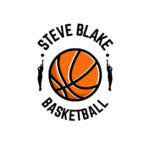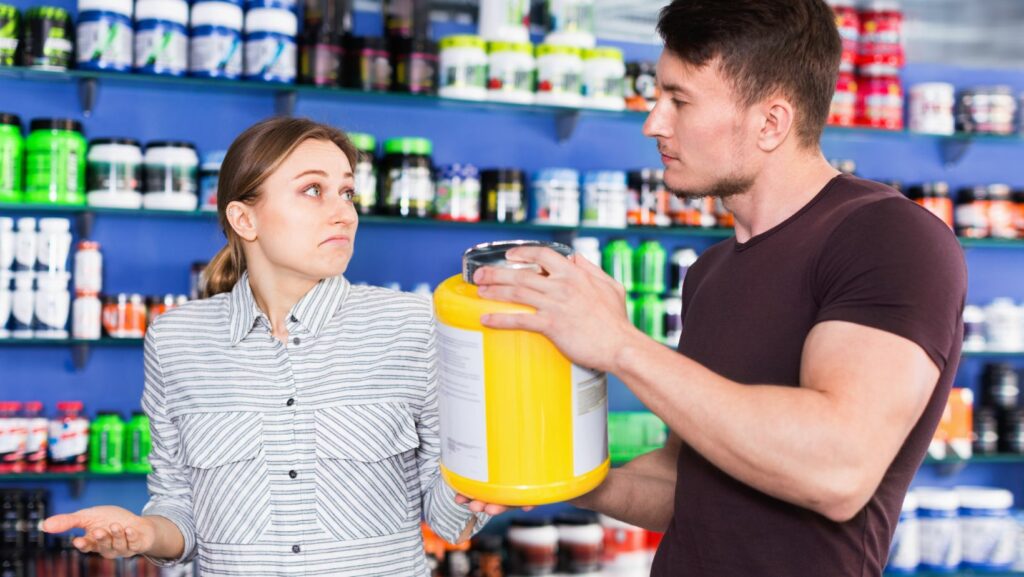Europe Sports Nutrition Market
- Rapid Market Growth: The European sports nutrition market is experiencing significant growth, with an estimated CAGR of 8% from 2023 to 2028, driven by increased health awareness and demand for performance-enhancing products.
- Diverse Consumer Demographics: The primary consumers of sports nutrition products range from ages 18 to 54, with a noteworthy rise in female participation, especially in wellness-targeted products.
- Innovative Product Offerings: Manufacturers are developing a variety of products including plant-based proteins, meal replacements, and recovery supplements, catering to an evolving consumer base focused on specific dietary needs and fitness goals.

- Challenge of Regulations: Compliance with varying regulations across European countries poses challenges for product development and marketing, requiring companies to continually adapt their strategies to meet standards set by authorities like the EFSA.
- Competitive Landscape: Major players like Nestlé Health Science and Glanbia PLC hold significant market shares, competing with innovative newcomers and alternative products that appeal to health-conscious consumers.
- Evolving Consumer Preferences: There is a notable shift towards functional foods and convenient nutritional options, with consumers increasingly seeking products that align with a holistic approach to health and fitness.
The European sports nutrition market is rapidly evolving, driven by a growing awareness of health and fitness among consumers. Athletes and fitness enthusiasts alike are seeking products that enhance performance, recovery, and overall well-being. This surge in demand has led to an array of nutritional supplements, energy bars, and protein-rich snacks flooding the market, each promising to boost athletic capabilities.
As the trend toward healthier lifestyles gains momentum, manufacturers are innovating to meet diverse consumer needs. From plant-based protein options to specialized formulations for endurance athletes, the market is becoming increasingly competitive. Understanding the dynamics of this market is crucial for stakeholders aiming to capitalize on its growth potential.
Overview of the Europe Sports Nutrition Market
The Europe sports nutrition market experiences significant growth, driven by consumer awareness of health and fitness. The demand for products that enhance performance, aid recovery, and promote overall wellness increases among athletes and fitness enthusiasts. This market encompasses a diverse range of nutritional supplements, energy bars, and protein-rich snacks.
The market dynamics reflect a shift towards healthier lifestyles, with consumers actively seeking options that align with their health goals. Innovative manufacturers respond by introducing plant-based protein products, catering to a growing demographic focused on vegan and vegetarian diets. Specialized formulations targeting endurance athletes gain traction, reflecting the demand for tailored nutrition solutions.
Market research indicates a steady rise in revenue, with projections estimating a compound annual growth rate (CAGR) of approximately 8% from 2023 to 2028. Key factors influencing growth include:
- Increased health consciousness among consumers
- Growth of fitness centers and gyms
- Rising popularity of sports and fitness events
- Innovative product launches and marketing strategies
Understanding these trends is crucial for stakeholders seeking to navigate the competitive landscape of the European sports nutrition market.
Key Drivers of Market Growth
Several key factors contribute to the growth of the European sports nutrition market, reflecting a robust shift in consumer behavior and industry innovation.
Increasing Health Awareness
Increasing health awareness significantly influences consumer choices. Individuals are more informed about the benefits of nutrition on overall health and athletic performance. Reports from the European Food Safety Authority indicate a growing preference for supplements that align with health goals. This trend drives demand for products that enhance recovery, endurance, and muscle growth. The focus on preventative health care further boosts interest in functional foods and supplements, with market players responding by developing research-backed products catered to health-conscious consumers.
Rise in Fitness Trends
The rise in fitness trends plays a crucial role in market expansion. The number of fitness centers and gyms in Europe has increased by approximately 3,000 between 2020 and 2023, fostering a fitness culture. As physical activities gain popularity, demand for nutrition products supporting various fitness regimens grows. Notably, group fitness classes, outdoor sports, and personal training sessions are becoming mainstream. This shift encourages manufacturers to offer specialized formulations targeting specific activities, creating a dynamic product landscape. Additionally, social media influencers promote fitness-related content, further encouraging consumers to integrate sports nutrition into their lifestyles.
Consumer Trends and Preferences
Consumer trends in the European sports nutrition market reflect a diverse range of preferences, driven by factors like health awareness and lifestyle choices. Understanding these trends enables manufacturers to tailor products that meet evolving consumer demands.
Demographics of Sports Nutrition Consumers
Demographics reveal distinct categories of sports nutrition consumers:
- Age Groups: Individuals aged 18-34 represent a significant portion, closely followed by consumers aged 35-54. Younger consumers often pursue fitness trends, while older consumers focus on health and recovery.
- Gender: Males historically dominate the sports nutrition segment, yet female participation is increasing, particularly with products targeting wellness and weight management.
- Income Levels: Higher disposable income correlates with increased spending on premium sports nutrition products, as consumers seek quality and efficacy in their choices.
- Geographic Distribution: Northern and Western Europe show the highest consumption rates, influenced by the presence of fitness centers and sports events.
Popular Product Categories
Several product categories capture consumer interest in sports nutrition:
- Protein Supplements: Whey and plant-based protein powders are popular for muscle recovery and growth. Novel formulations, including blends with vitamins, gain traction.
- Energy Bars: These convenient options offer on-the-go nutrition. Flavors, textures, and healthy ingredients attract a broad audience.
- Meal Replacements: Meal replacement shakes provide convenience for busy lifestyles while offering balanced nutrition.
- Recovery Products: Post-workout supplements aid in muscle repair and hydration, appealing to serious athletes and fitness enthusiasts.
- Functional Beverages: Sports drinks with electrolytes and vitamins enhance performance and hydration, becoming essential during workouts and events.
Consumer preferences continue to evolve within the European sports nutrition market, requiring stakeholders to remain agile and responsive to emerging trends.
Major Players in the Market
The European sports nutrition market features a diverse array of key players that significantly influence trends and product offerings. The competition includes well-established companies as well as innovative newcomers aimed at capturing consumer interest.
Company Profiles
- Nestlé Health Science
Nestlé Health Science offers a variety of sports nutrition products, including its well-known brands like Optimum Nutrition and Garden of Life. These brands focus on performance enhancement and recovery, appealing to health-conscious consumers.
- Glanbia PLC
Glanbia PLC specializes in nutritional products and operates brands such as BSN and Isopure. Their extensive portfolio includes protein supplements and meal replacements, capturing a significant share of the market.
- AdvoCare International, L.P.
AdvoCare provides an array of nutritional supplements tailored for athletes. Their emphasis on performance and wellness positions them as a popular choice among active individuals.
- The Coca-Cola Company
Through its brand Bodyarmor, The Coca-Cola Company offers hydration solutions and sports drinks, targeting consumers seeking replenishment during physical activities.
- Herbalife Nutrition Ltd.
Herbalife focuses on nutritional supplements and weight management, catering to a demographic interested in health and fitness enhancement. Their direct selling model strengthens brand loyalty among consumers.
Market Share Analysis
The European sports nutrition market displays a competitive landscape characterized by diverse segments. Key players hold substantial market shares as shown in the following table:
| Company | Estimated Market Share (%) |
|---|---|
| Nestlé Health Science | 22 |
| Glanbia PLC | 20 |
| Herbalife Nutrition Ltd. | 15 |
| The Coca-Cola Company | 10 |
| Others | 33 |
Market share reflects the influence of these companies in shaping consumer preferences for sports nutrition products. The presence of established brands alongside emerging entrants creates a dynamic environment, driving innovation and variety in product offerings across the region.
Challenges Facing the Market
The European sports nutrition market encounters several challenges that could impact growth potential. Key issues include regulatory hurdles and competition from alternative products.
Regulatory Hurdles
 Regulatory constraints significantly impact product development and marketing strategies in the sports nutrition sector. Different European countries enforce varying regulations, complicating compliance for manufacturers. For example, the European Food Safety Authority (EFSA) imposes stringent guidelines regarding health claims on products, requiring extensive scientific evidence. This can delay product launches and increase development costs. Additionally, changes in legislation regarding labeling and ingredient usage necessitate constant monitoring and adaptation by companies to ensure they meet compliance standards across different markets.
Regulatory constraints significantly impact product development and marketing strategies in the sports nutrition sector. Different European countries enforce varying regulations, complicating compliance for manufacturers. For example, the European Food Safety Authority (EFSA) imposes stringent guidelines regarding health claims on products, requiring extensive scientific evidence. This can delay product launches and increase development costs. Additionally, changes in legislation regarding labeling and ingredient usage necessitate constant monitoring and adaptation by companies to ensure they meet compliance standards across different markets.
Competition from Alternative Products
The surge in healthy lifestyle options presents intensified competition from alternative products. Plant-based and organic food trends appeal to health-conscious consumers seeking non-traditional nutritional sources. Competitors also include beverages like smoothies and juices, which often position themselves as healthier alternatives to traditional sports nutrition products. As consumers expand their definition of sports nutrition, companies face pressure to innovate and differentiate their offerings to maintain market relevance. Increased consumer awareness of holistic wellness further broadens the scope of competition beyond conventional sports nutrition, compelling brands to emphasize unique benefits or specialized formulations to attract targeted demographics.
Health-focused Products
The European sports nutrition market is poised for impressive growth driven by consumer demand for health-focused products. As awareness of nutrition’s role in athletic performance continues to rise individuals are increasingly turning to supplements that support their fitness goals. The market’s evolution reflects a shift towards innovation with brands introducing diverse and specialized offerings.
Key players are adapting to these trends while navigating challenges such as regulatory complexities and competition from alternative nutrition sources. Staying attuned to consumer preferences will be essential for brands aiming to thrive in this dynamic landscape. With a projected CAGR of 8% from 2023 to 2028 the future looks bright for stakeholders ready to capitalize on the opportunities within this vibrant market.

